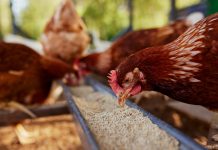Open Access Government explores Thailand’s Department of Agriculture, and how it is a centre of excellence particularly regarding its research and development of rice cultivation
The Thailand Department of Agriculture (DOA) was established on October 1st 1972 and comprises of 15 pioneering units including the Office of the Secretary, Finance Division, Personnel Division, Planning Division, Rice Division, Field Crops Division, Horticulture Division, Sericulture Division, Rubber Division, Agricultural Engineering Division, Plant Pathology Division, Entomology and Zoology Division, and Agricultural Chemistry Division. A total of 95 research centres, stations and plant quarantine stations have since been established throughout the country, with offices and centres in 56 provinces.
It is self-described as a “center of excellence in the field of crops research and development and farm mechanisation, in harmony with international standards and in adherence to the principles of natural resources conservation and environment protection.” (1)
The five current mandates of the DOA are as follows:
- Conduct research and development studies on various agricultural disciplines concerning crops and farm mechanisation.
- Provide services on the analysis, inspection, quality certification and advice on soil, water, fertiliser, crops, agricultural inputs production and products.
- Enforcement of the six Regulatory Acts under the Department’s jurisdiction; including the Quarantine Act B.E. 2551 (2008), and Plant Variety Protection Act B.E. 2542 (2009).
- Transfer of agricultural technology to concerned government officials, farmers, and the private sector.
- Implementation of urgent programs assigned to the Department of Agriculture by the Ministry of Agriculture.
The Rice Division
The Department of Agriculture itself was originally formed by merging the former Department of Agriculture and the Rice Department, to facilitate coordination of departments and streamline mandate implementation. However, in 2006, the former Rice Research Institute was re-established and upgraded as Rice Department and was no longer under the Department of Agriculture.
This new department is the main organisation in charge of improving rice production in Thailand, including yield and quality, genetic conservation and protection of rice varieties, seed production and distribution, as well as the promotion of cultural and local wisdom related to rice, among others.
Thailand has approximately 10 million hectares of rice plantations and had 3.7 million farmer households. More than 30 million tonnes of paddy from wet season and dry season can be produced annually. The Rice Department is aware of the importance of high-quality seed, acceptable for both farmers and those associated with farming. Therefore, the Department has produced and distributed this good-quality seed for farmers by implementing the following; the development and improvement of the Community Rice Centre, the Seed Bank Project, Seed Producing Villages, building networks of seed producers and distributors and encouraging them to maintain the same standards set under the Plant Variety Act, so that there are sufficient high-quality seeds for the annual seed demand of farmers.
The Rice Departments overarching vision is “to be a leader in rice research and development, to enhance productivity, to provide farmers with excellent services, and to sustainably empower farmers” (2) and they do this through their four core values:
- Responsibility.
- Integrity.
- Credibility.
- Excellence.
Each of these core values provides direction for future action in rice cultivation to achieve their vision. Among future plans, the DOA aims to enhance research and development on rice varieties and production technologies, breed high-yield rice varieties, aiming at 9.4 tons/hectare for photo insensitive varieties, promote modern technology and intensive rice production, and set up a system to link up producers, traders and consumers.
Finally, to continue empowering farmers in the future – one focus area taken very seriously – the Rice Department is building up local technology transfer centres and networks for rice production, promoting the development of local farmers’ centres, promoting production risk insurance, and researching the economic and social aspects of farmers’ needs to set up models for technology transfer.
References
http://www.doa.go.th/en/
http://www.ricethailand.go.th/web/images/pdf/rice_AEC/RD.pdf
Open Access Government
editorial@openaccessgovernment.org
www.openaccessgovernment.org
https://twitter.com/OpenAccessGov











